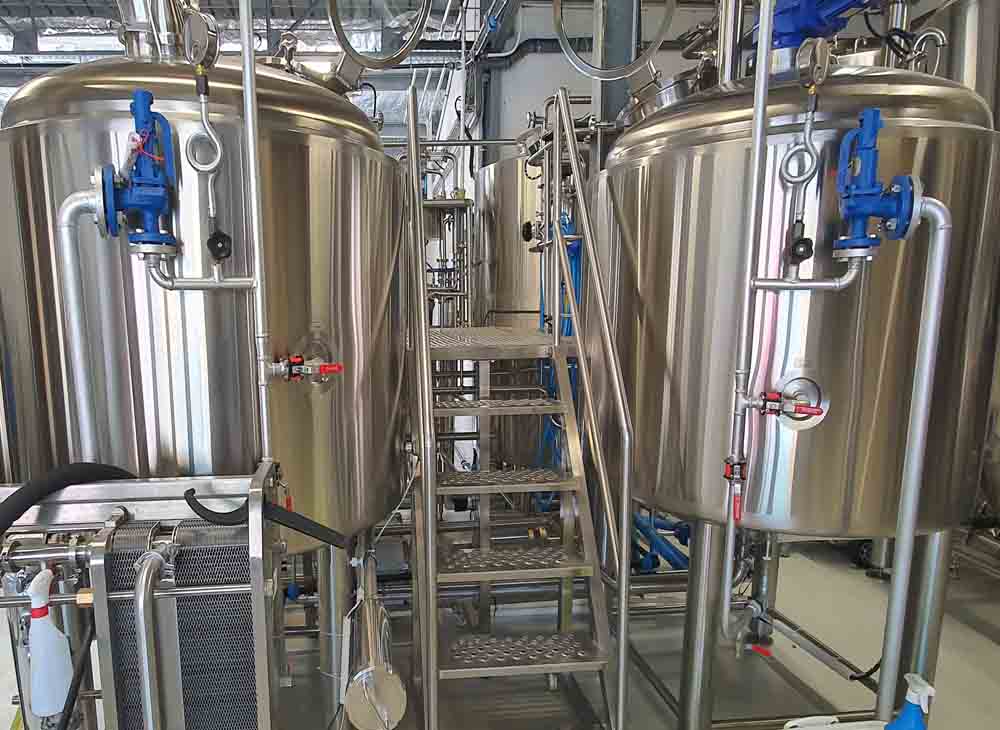How do we maintain the comfortable bitterness of beer ?
- Apr 14, 2021
- 63
- tiantai
Raw materials
1) The quality of hops is poor; or long-term storage causes aging, the content of ɑ-acid decreases, and a large amount of β-acid is oxidized, resulting in bad bitterness and astringency.
2) Malt quality is poor, thick and rough; or crushed too finely, a large amount of polyphenols in the husk during mashing and washing of the grains are leached, and tannins are oxidized and polymerized at a higher temperature, which makes the beer produce obvious bitterness .
3) High levels of magnesium, iron, manganese ions, sulfates, carbonates, residual alkalinity and total hardness in the brewing water can also cause bad bitterness and astringency in beer.

Process
1) Bad bitterness and astringency formed during mashing.
-Wort filtration time is long, excessive tannins, anthocyanins and fatty acids enter the wort, which will increase the uncomfortable bitterness of the wort;
-The filtered wort is turbid and unclear, and the wort has too much oxygen during feeding, stirring and pouring, and polyphenols react with oxygen to increase the bitterness of the wort;
-Too long washing time and high temperature of washing water will cause the wort to produce bitter and astringent taste;
- In order to reduce costs, use the lees water from the previous batch as the next batch of saccharification feed water, because the lees water easily contains tannins, phenols and other bitter substances, which brings bitterness to the new wort .
- The boiling strength of the wort is not enough, and the content of coagulum is increased, so that the tannin and protein in the hops and husks are not sufficiently flocculated, which will increase the bitterness and astringency of the wort;
2) Bad bitterness and astringency formed during fermentation.

Edited by Alisa
Email:[email protected]
Tiantai Beer Equipment
1) The quality of hops is poor; or long-term storage causes aging, the content of ɑ-acid decreases, and a large amount of β-acid is oxidized, resulting in bad bitterness and astringency.
2) Malt quality is poor, thick and rough; or crushed too finely, a large amount of polyphenols in the husk during mashing and washing of the grains are leached, and tannins are oxidized and polymerized at a higher temperature, which makes the beer produce obvious bitterness .
3) High levels of magnesium, iron, manganese ions, sulfates, carbonates, residual alkalinity and total hardness in the brewing water can also cause bad bitterness and astringency in beer.

Process
1) Bad bitterness and astringency formed during mashing.
-Wort filtration time is long, excessive tannins, anthocyanins and fatty acids enter the wort, which will increase the uncomfortable bitterness of the wort;
-The filtered wort is turbid and unclear, and the wort has too much oxygen during feeding, stirring and pouring, and polyphenols react with oxygen to increase the bitterness of the wort;
-Too long washing time and high temperature of washing water will cause the wort to produce bitter and astringent taste;
- In order to reduce costs, use the lees water from the previous batch as the next batch of saccharification feed water, because the lees water easily contains tannins, phenols and other bitter substances, which brings bitterness to the new wort .
- The boiling strength of the wort is not enough, and the content of coagulum is increased, so that the tannin and protein in the hops and husks are not sufficiently flocculated, which will increase the bitterness and astringency of the wort;
2) Bad bitterness and astringency formed during fermentation.

Edited by Alisa
Email:[email protected]
Tiantai Beer Equipment




